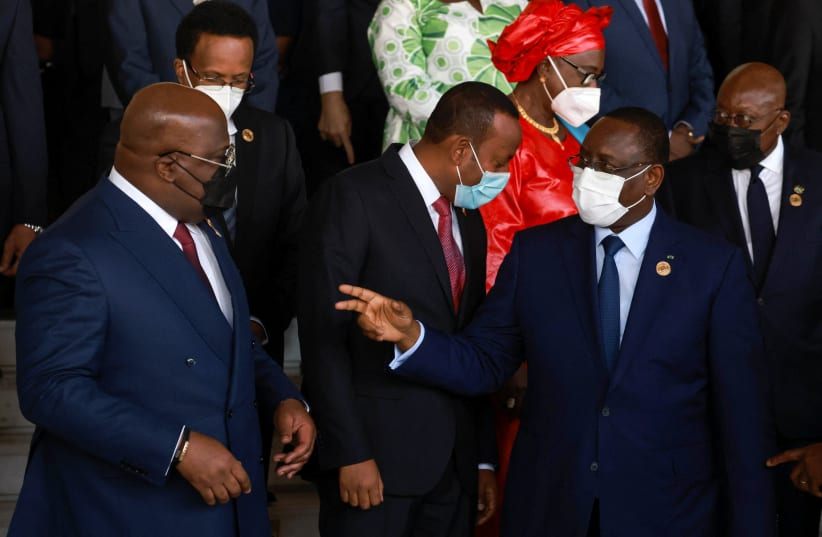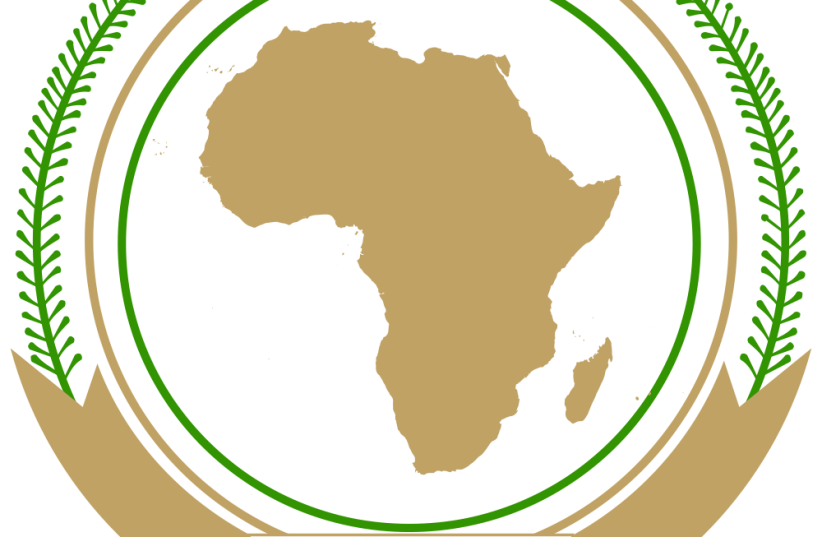The African Union formed a committee to reexamine Israel’s observer status on Sunday, deferring a planned vote from this year’s assembly.
The committee is meant to review Israel’s status and submit its conclusion to next year’s AU Executive Council.
“Algeria and South Africa failed in its attempt to kick Israel out,” a Foreign Ministry source said.
At the same time, Israel’s hope to win a vote in a way that would finally confirm its observer status was not realized.
“Israel’s acceptance to the African Union as an observer is clearly in the interest of Israel, the AU and of its members,” the Foreign Ministry said. “It will allow increased cooperation between Israel and African states.”
Israel views deeper relations and cooperation with the AU as very important, it added.
Beirut-based Al Mayadeen, a pan-Arabist satellite television channel, falsely said Israel had been suspended from its observer status. It also reported that the committee members will be Senegalese President Macky Sall, in his capacity as president of the African Union, Algerian President Abdelmadjid Tebboune, South African President Cyril Ramaphosa, Nigerian President Muhammadu Buhari, Cameroonian President Paul Biya and the Democratic Republic of Congo’s President Felix Tshisekedi, who pushed for Israel’s observer status when he led the AU.
Most AU decisions are made by consensus, and the committee is a way to avoid a divisive vote.
The African Union Executive Council convened in Addis Ababa last Thursday with heads of state in attendance. Two-thirds of the 54 member states of the African Union would have had to support a South African- and Algerian-led motion to revoke Israel’s observer status for it to be enacted.
Palestinian Authority Prime Minister Mohammad Shtayyeh joined the campaign against Israel, telling the AU over the weekend, “The time is right to condemn Israel for its crimes of persecution and apartheid.”
Jerusalem had been optimistic that Israel would get the votes it needs, and an African diplomatic source agreed with the assessment last week.
The Foreign Ministry’s deputy foreign minister for Africa visited Addis Ababa and Senegal, among other African countries, in recent weeks to promote Israel’s position in the vote, the source said.
Israel rejoined the African Union as an observer last July when African Union Commission Chairman Moussa Faki Mahamat announced the move, supported by Tshikedi. While Mahamat had the authority to do so unilaterally, he believed he had majority support when he gave Israel the status, a diplomatic source said.
Since then, 21 AU member states have protested the move, though many were specifically opposed to being presented with facts on the ground without a discussion and not Israel’s observer status on principle.
Eleven out of 54 AU member states do not have full relations with Israel. Several of those 11 have understandings with Israel, such as Djibouti, which allows Israeli ships to pass through its waters.
The AU was founded in 2002, with Israel as an observer. Israel was ousted from the AU the following year in a campaign spearheaded by the late Libyan dictator Muammar Gaddafi.

